Immigration Services
We help businesses, families, and individuals navigate the immigration process and reach their goals
Corporations / Employees
Families
Individuals
Investors
Students
Victims
Immigration Services
Main Menu
Family Immigration For Other Relative(s)
The immigration laws of the United States allows for certain family members of US citizens and lawful permanent residents to become lawful permanent residents in their own right, based on specific family relationships. That means if you are either a native-born or naturalized US citizen, and want to help relatives born in another country emigrate to the United States, you may be able to help them obtain US permanent residency. Other family members who are eligible for a Green Card are mentioned below in the preference immigrant categories:

First Preference (F1): Unmarried children who are 21 years of age the US citizens
Second Preference (F2A): Spouse and children who are under 21 years of age of the US citizens
Second Preference (F2B): Unmarried children who are over 21 years of age of lawful US citizens
Third Preference (F3): Married children of US citizens
Fourth Preference (F4): Siblings of US citizens
Second Preference (F2A): Spouse and children who are under 21 years of age of the US citizens
Second Preference (F2B): Unmarried children who are over 21 years of age of lawful US citizens
Third Preference (F3): Married children of US citizens
Fourth Preference (F4): Siblings of US citizens
The processes surrounding family immigration for other contingent beneficiaries is quite complicated and requires particular attention to detail. We recommend that anyone considering this consult with an immigration attorney that has background in family-based residency. The actual processing time of your petitions depends on several factors such as:
Your immigration status
Whereabouts of the family members in question (referred to as a ‘beneficiary’)
What country the Beneficiary (or beneficiaries) are currently in
Nature of the family relationship and personal circumstances specific to the beneficiary, including their immigration history
As more people apply each year for this status than there are available visas, the waiting period can be anticipated to be very significant, particularly from countries with high populations and natural affinity for the cultural and economic advantages provided in the United States.
It is recommended to submit the Affidavit of Support, Form I-864 along with the necessary documents at the same time as the Form I-130, instead of waiting for it to be requested later. The immigration attorneys at Rijal Law Firm can help you file the forms and make sure they are complete, error-free, and sufficiently robust so as to deter any potential for the issuance of an RFE notice or similar obstacle.
After USCIS reviews the petition and verifies that it is complete, it issues a receipt notice to the applicant and/or the attorney.
Once a comprehensive security check has been conducted, all necessary fees paid in full, and all documents properly filed, the NVC forwards the case to the consular office abroad indicated on the Form I-130. The applicant needs to go through a medical examination, biometrics, and police clearance. A notice for a personal interview follows, which is the last step in the process. The applicant should bring all the copies of the relevant documents and original proofs of the family relationship with the petitioner.
Call Rijal Law firm todayif you are eligible to sponsor a relative and start this process today; the sooner you get underway, the closer you will be to successfully being with your loved ones again.
Your immigration status
Whereabouts of the family members in question (referred to as a ‘beneficiary’)
What country the Beneficiary (or beneficiaries) are currently in
Nature of the family relationship and personal circumstances specific to the beneficiary, including their immigration history
As more people apply each year for this status than there are available visas, the waiting period can be anticipated to be very significant, particularly from countries with high populations and natural affinity for the cultural and economic advantages provided in the United States.
How to start with the immigration process
The process starts with the permanent resident (sometimes referred to as the ‘sponsor’ or ‘petitioner’ in this context) filing Form I-130, Petition for Alien Relative. The form is available free of charge on the USCIS website. The most important question in Form I-130 is to name the office where the contingent beneficiary will either adjust status (if they are lawfully present in the US) or request a visa, if applying at a US embassy in the home country of the beneficiary. Form I-130 must be filed and submitted with the documents proving that the petitioner is a citizen of the US and establishing that a legitimate family relationship exists between the beneficiary and the petitioner. A petition for a spouse must include proof of a bona fide marriage such as a marriage certificate, as well as any other supporting evidence that will help guarantee that the arrangement is not simply a sham to obtain a green card. USCIS Officers take that possibility very seriously and will pursue any hint of deception vigorously.It is recommended to submit the Affidavit of Support, Form I-864 along with the necessary documents at the same time as the Form I-130, instead of waiting for it to be requested later. The immigration attorneys at Rijal Law Firm can help you file the forms and make sure they are complete, error-free, and sufficiently robust so as to deter any potential for the issuance of an RFE notice or similar obstacle.
After USCIS reviews the petition and verifies that it is complete, it issues a receipt notice to the applicant and/or the attorney.
Transferring the application to National Visa Center (NVC)
For the beneficiaries outside the US, the case will be transferred to the National Visa Center (NVC). This office holds onto the beneficiary’s files until the waiting period is over and the visa has become available. If the visa is available immediately, NVC starts processing the case. It will issue several instructions and forms to the immigrant. Form I-864, Affidavit of Support is needed for each intending immigrant and the fee is to be paid for each applicant. To ensure that the immigrant won’t become dependent on government assistance, they need to fill the Form DS-5540, the Public Charge Questionnaire. You need to provide details such as education, household size, skillset, and the source of health insurance. The aspiring applicant also needs to file Form DS-260, Online Immigrant Visa Application, and the Alien Registration Application.Once a comprehensive security check has been conducted, all necessary fees paid in full, and all documents properly filed, the NVC forwards the case to the consular office abroad indicated on the Form I-130. The applicant needs to go through a medical examination, biometrics, and police clearance. A notice for a personal interview follows, which is the last step in the process. The applicant should bring all the copies of the relevant documents and original proofs of the family relationship with the petitioner.
Call Rijal Law firm todayif you are eligible to sponsor a relative and start this process today; the sooner you get underway, the closer you will be to successfully being with your loved ones again.
